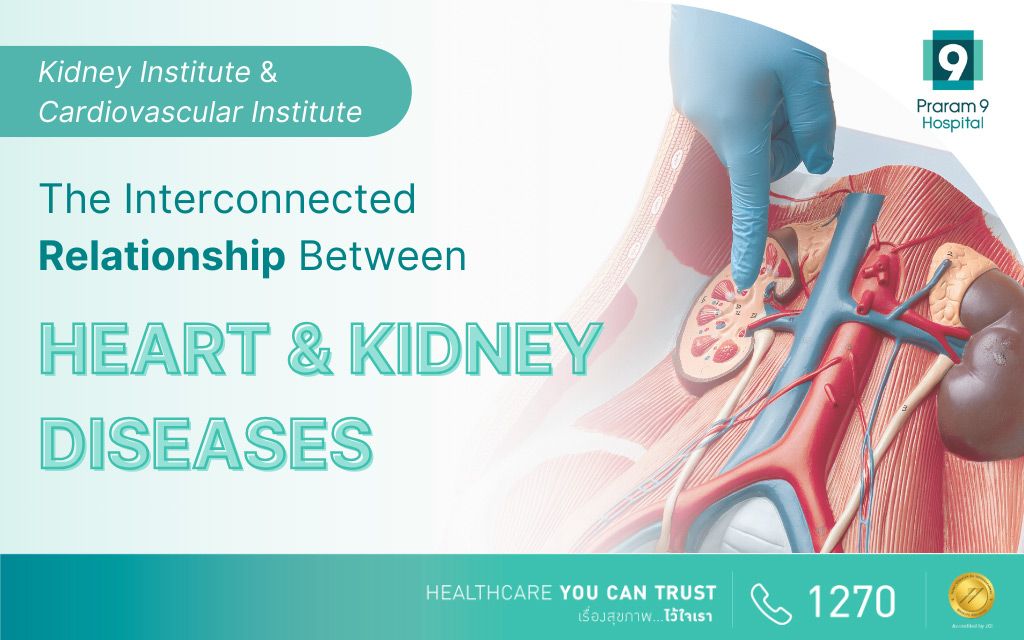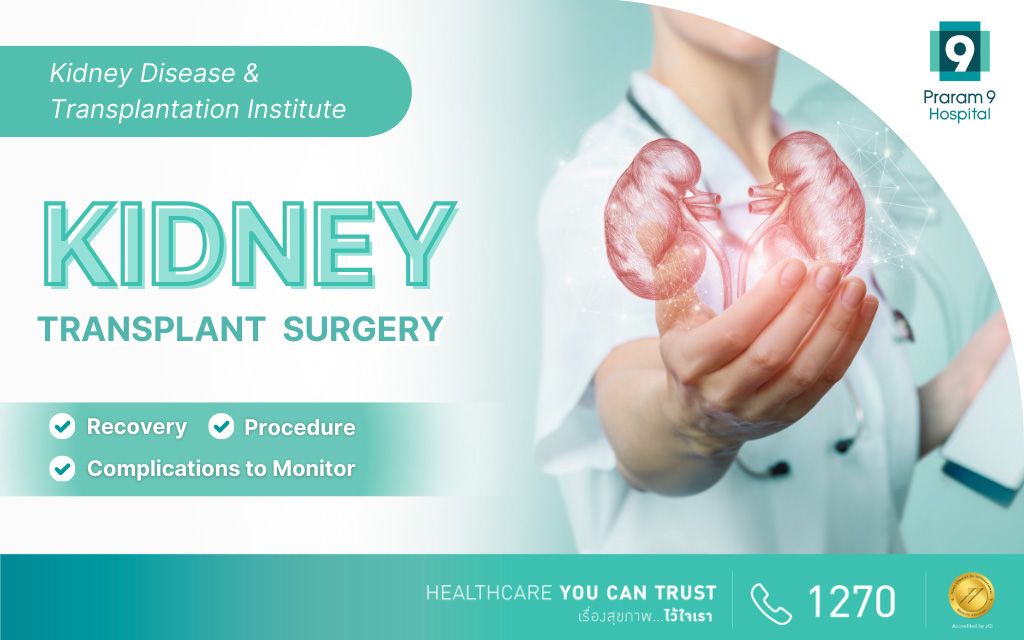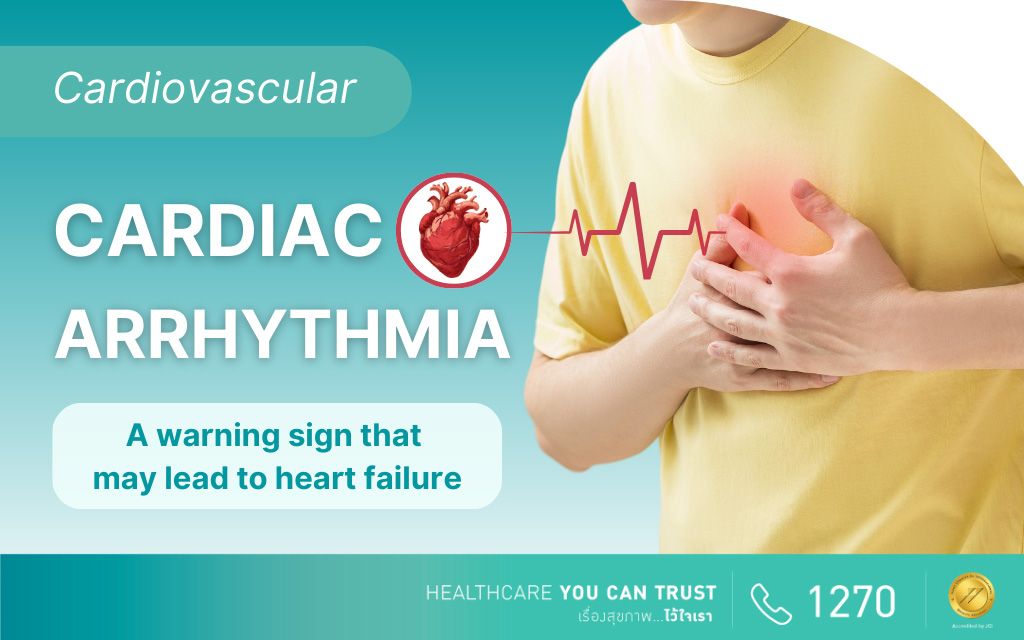Health Articles
Knowledge
The Interconnected Relationship Between Heart Diseases and Kidney Diseases

Kidney disease and heart disease belong to the same category of non-communicable chronic diseases (NCDs), a group of whose incidence and mortality are rising in nearly every country worldwide. While these two diseases are typically considered separately, a closer look reveals their profound interconnectedness .They not only share common risk factors but also having one can increase the likelihood of developing the other .
Table of contents
- Heart Disease
- Kidney Disease
- Relationship Between the Heart and Kidneys
- Risk Factors for Heart Disease and Kidney Disease
- Advice for Patients with Heart Disease and Kidney Disease
- Prevention of Heart Disease and Kidney Disease
- Conclusion
Heart Disease
Heart disease encompasses a group of disorders affecting the cardiovascular system, including the heart muscle, coronary arteries, heart valves, electrical conduction system, and pericardium. These conditions impair the heart’s ability to function normally. Heart disease can be classified into various types, each characterized by specific causes and symptoms.
Common types of heart disease include coronary artery disease or atherosclerosis, arrhythmias, valvular heart disease (such as valve regurgitation or stenosis), cardiomyopathies, and heart failure. Patients with heart disease frequently experience symptoms such as fatigue, chest pain, rapid breathing, palpitations, dizziness, fainting, or loss of consciousness. If any of these symptoms occur, it is important to consult a doctor for accurate diagnosis and appropriate treatment.
Kidney Disease
The kidneys are essential organs that play a crucial role in filtering waste products from the blood and maintaining the body’s fluid and mineral balance. When kidneys malfunction,it can lead to serious health issues such as fluid overload, electrolyte imbalances, and anemia.
Kidney disease can occur suddenly (acute) or develop over time (chronic). Chronic kidney disease often progresses slowly, making it difficult for patients to notice symptoms until the disease has reached an advanced stage. At this point, it may lead to severe complications known as end-stage kidney disease, which is complex and typically irreversible.
Individuals with pre-existing conditions like diabetes or high blood pressure are at higher risk of developing chronic kidney disease. Regular screening is crucial because early detection allows for effective treatment and prevention of further complications.
Relationship Between the Heart and Kidneys
The heart and kidneys are vital organs that work together to maintain the body’s circulatory balance. The relationship between these two organs is complex and interdependent, influencing each other in several crucial ways
- Heart Pumps Blood to Kidneys: The heart pumps blood throughout the body, including to the kidneys. This blood carries oxygen and essential nutrients necessary for the kidneys to function.
- Kidneys Filter Waste: The kidneys filter waste and toxins from the blood, excreting them from the body through urine.
- Kidneys Regulate Blood Pressure: The kidneys play a key role in regulating blood pressure by maintaining the balance of minerals and fluids in the body.
- Kidneys Produce Hormones: The kidneys produce erythropoietin, a hormone that stimulates bone marrow to produce red blood cells. They also regulate the levels of calcium and phosphate in the blood, which are crucial for muscle and nervous system function.
The heart and kidneys rely on each other’s functions. When one organ malfunctions, it can affect the other. For example:
- Heart Conditions: In conditions like coronary artery disease or chronic heart failure, where the heart’s ability to pump blood is compromised, it can lead to reduced blood flow to the kidneys. This may result in kidney dysfunction or chronic kidney disease.
- Kidney Conditions: Conversely, in conditions such as chronic kidney disease, the kidneys may fail to adequately filter waste and maintain electrolyte balance. The accumulation of waste products in the blood can affect the heart, leading to conditions like high blood pressure or cardiovascular disease.
In summary, the operations of the heart and kidneys are closely intertwined. Therefore, any dysfunction in one system can potentially impact the other, emphasizing the importance of comprehensive health management to maintain overall well-being.
Risk Factors for Heart Disease and Kidney Disease
Although the heart and kidneys have distinct functions, they share similar risk factors that contribute to both diseases:
- Atherosclerosis (Hardening of the Arteries): Atherosclerosis, caused by the buildup of fats in the arteries, can affect both the heart and kidneys. Narrowed arteries reduce blood flow, impacting the function of these organs. This condition also increases the risk of stroke.
- High Blood Pressure (Hypertension): High blood pressure makes the heart work harder to pump blood throughout the body against elevated pressure. This can lead to damage in the arteries and strain on the kidneys, potentially causing high blood pressure within the kidney arteries, inflammation of kidney blood vessels, and damage to kidney tubules. This exacerbates hypertension and creates a cycle affecting both the kidneys and heart.
- Diabetes: Elevated blood sugar levels associated with diabetes can lead to inflammation and hardening of arteries throughout the body, including those in the kidneys. Individuals with diabetes have an increased risk of heart disease and kidney disease compared to the general population.
- High Cholesterol: High levels of cholesterol in the blood contribute to the buildup of fatty deposits in the arteries, increasing the risk of heart disease. It also adversely affects kidney function by impairing blood flow and potentially causing damage to the kidneys over time.
- Obesity: Obesity is directly linked to increased risks of diabetes, hypertension, and high cholesterol levels, all of which contribute significantly to the risk of heart disease and kidney disease. Obesity also increases the risk of chronic kidney disease through systemic inflammation and arterial hardening.
- Smoking: Smoking damages blood vessels throughout the body, increasing the risk of atherosclerosis and contributing to heart disease and kidney disease.
Avoiding these risk factors can help prevent both heart disease and kidney disease. Managing conditions like diabetes, hypertension, and high cholesterol through lifestyle changes and medical treatment can significantly reduce the risk of developing these serious health conditions. Regular check-ups and screenings are important for early detection and intervention to prevent complications.
Advice for Patients with Heart Disease and Kidney Disease
Taking care of health for individuals with both kidney and heart disease is crucial due to their close interrelation and potential mutual impact, as discussed earlier.
For Patients with Heart Disease
- Proper Diet: Avoid foods high in saturated fats and cholesterol, such as fatty red meats, and focus on foods rich in good fats, like fish high in omega-3, vegetables, fruits, and whole grains.
- Regular Exercise: Engaging in appropriate physical activity helps strengthen the heart.
- Weight Management: Maintain a healthy weight to reduce the workload on the heart.
- Avoid Smoking and Alcohol: Quit smoking and limit alcohol intake.
- Monitor Blood Pressure and Cholesterol Levels: Regularly check blood pressure and cholesterol levels.
For Patients with Kidney Disease
- Limit Sodium (Salt), Protein, and Potassium in Diet: Maintain these nutrients in appropriate amounts to reduce the workload on the kidneys.
- Maintain Proper Weight: Ensure weight is appropriate to lessen strain on the kidneys.
- Control Blood Sugar Levels: Crucial for diabetic patients to prevent kidney complications.
- Manage Blood Pressure: Keep blood pressure within normal range to prevent kidney damage.
- Avoid Toxins and Certain Medications: Such as non-steroidal anti-inflammatory drugs (NSAIDs), which can harm kidney function.
Avoiding these risk factors can significantly help prevent complications associated with both kidney and heart diseases.
Prevention of Heart Disease and Kidney Disease
To prevent heart and kidney diseases, focus on the following recommendations:
Dietary Habits
- Emphasize consumption of fruits, vegetables, and whole grains that are low in saturated fats, trans fats, and high sodium.
- Avoid foods high in saturated and trans fats.
- limit sodium intake.
Regular Exercise
- Engage in moderate-intensity exercise for at least 150 minutes per week. This can include activities like brisk walking, swimming, or cycling.
Maintain a Healthy Weight
- Ensure your weight is within a healthy range to reduce the risk of both heart and kidney diseases.
Avoid Smoking
- Quit smoking to significantly reduce the risk of heart disease.
Limit Alcohol Consumption
- Moderate or eliminate alcohol intake to protect both heart and kidney health.
Manage Stress
- Practice stress management techniques such as yoga, meditation, or hobbies to reduce stress levels.
Adequate Sleep
- Get sufficient sleep each night to support overall health and well-being.
Regular Health Check-up
- Regularly screen for kidney disease, high blood pressure, and overall health to detect any issues early.
Following these guidelines can significantly lower the risk of developing heart and kidney diseases, promoting overall health and well-being.
Conclusion
Heart disease and kidney disease are closely interconnected and mutually impact each other. Risk factors such as diabetes and high blood pressure can contribute to both conditions. Eating a balanced diet, exercising regularly, maintaining a healthy weight, avoiding smoking and alcohol, and regularly monitoring blood pressure and cholesterol levels are crucial preventive measures. For individuals with diabetes, managing blood sugar levels within normal limits can help significantly reduce the risk and impact of both kidney and heart diseases.
About the Author














